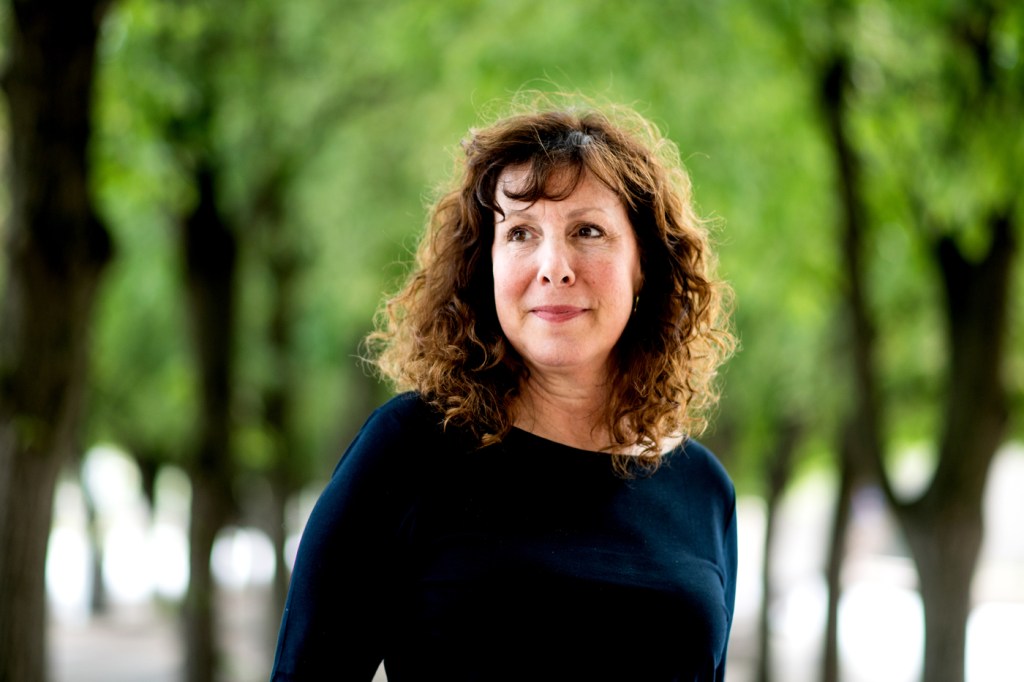Advocate’s mentorship adds up to diversity in those studying computer science

Carla E. Brodley, professor in Khoury College of Computer Sciences at Northeastern and founding executive director of the Center for Inclusive Computing, recently became the first recipient of the Association for Computing Machinery’s Frances E. Allen Award for Outstanding Mentoring.
The award and $25,000 cash prize acknowledges her extensive career dedicated to increasing diversity in computer science programs in higher education and facilitating mentorship opportunities for underrepresented populations in a field dominated largely by men.
“Fran Allen was the first woman to win the Turing Award,” says Brodley, referring to an award that is largely considered the Nobel Prize-equivalent of computing awards. “It’s a huge honor to win an award in her name. Fran was an incredible mentor to everyone she encountered.”
Brodley served as dean of Khoury College of Computer Sciences from 2014 to 2021, during which, total enrollment of female undergraduates in Northeastern’s computer science program increased from 19% to 32% (the national average is 21.5%), and enrollment of female graduate students in computer science increased from 33% to 42% (the national average is 25.7%). As for races and ethnicities historically marginalized in computing, student enrollment increased from 10% to 19%.
“Northeastern is one of the most gender-diverse universities in the country for computer science, largely because of the initiatives we implemented,” she says.
But Brodley’s influence extends beyond Northeastern. She played a key role in developing the Align Master of Science in Computer Science program, a graduate program designed for individuals without an undergraduate degree in computer science. This program has been adopted by 13 other universities, and Brodley says 40 more universities recently expressed interest in learning more about how they might implement such a program.
In addition to the $25,000 granted to Brodley personally, the award also includes $10,000, which recipients can donate to an approved charity. Brodley plans to donate at least $10,000 to the Computing Research Association’s Committee on Widening Participation in honor of Andrea Danyluk, a colleague of Brodley’s, who took a year of absence from Williams College to serve as the Global Director of the Align Program, and recently passed away in March.
“Andrea and the managing director of the Align program, Catherine Gill, both played fundamental roles in developing and scaling this program,” says Brodley.
During her tenure at Northeastern, Brodley also founded the Center for Inclusive Computing, which advises other universities on systemic changes that can be made to increase the number of women of all races and ethnicities in computer science programs.
Under Brodley’s leadership, the center has provided over $13 million in grants to 56 schools to help other universities understand their specific gaps in diversity and implement appropriate changes to their programs. The grants cover the cost of collecting data related to enrollment, persistence, retention, and graduation, as well as funding to make systemic, sustainable changes.
The center also guides grantees through a multi-stage process that includes mentoring faculty and administrators in how to diagnose their own institutional barriers and how to implement the appropriate evidence-based practices to ensure that all students can discover, enjoy and persist in computing.
“We took an idea, and we scaled it to the national level,” she says. “Universities across the country are now working to break down those institutional barriers that prevent students from discovering, enjoying and persisting in computing.”
For media inquiries, please contact media@northeastern.edu.





